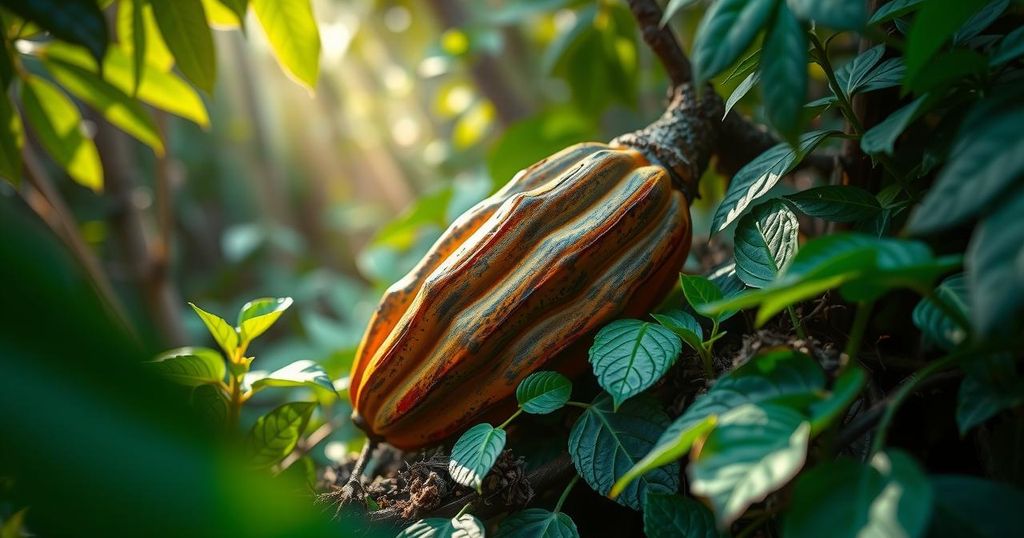Climate change is severely impacting cacao production in West Africa, with rising temperatures leading to lower yields and higher cocoa prices. A study revealed that extreme heat conditions are becoming more frequent, threatening the viability of cocoa farming. The findings underscore the urgent need to address climate issues to protect both the industry and local livelihoods.
A recent study highlights the detrimental effects of climate change on cacao production in West Africa, where extreme temperatures have hindered crop yields. This region, responsible for approximately 70% of the global chocolate supply, has experienced increased heat, disease, and atypical rainfall patterns that have adversely affected farmers and contributed to soaring cocoa prices.
The research conducted by Climate Central reveals that the burning of fossil fuels is resulting in more frequent high temperatures in cacao-producing countries such as Ivory Coast, Ghana, Cameroon, and Nigeria. The findings indicate a significant rise in temperatures surpassing 32 degrees Celsius (89.6 degrees Fahrenheit), crucial for cacao cultivation, especially in Ivory Coast and Ghana.
Through analysis of observational data and models, the study determined that climate change has led to an additional three weeks of heightened temperatures during the growing season over the past decade. In the previous hottest year on record, 2023, the regions faced extreme heat on at least 42 days during the main harvest period, negatively impacting both quantity and quality of cacao.
The report also identified other factors, including infestations, irregular rainfall, smuggling, and illegal mining, that are further jeopardizing cacao production and driving cocoa prices upward. In parallel, research from Christian Aid emphasizes the vulnerability of cacao farmers to the increasingly erratic weather conditions exacerbated by global warming.
Osai Ojigho, director of Christian Aid’s policy and public campaigns, emphasized the significance of cocoa farming for marginalized communities and the serious threats posed by climate change. The impact of failed harvests has driven cocoa prices to unprecedented levels since late 2023, with New York market prices reaching nearly $10,000 per tonne.
Narcisa Pricope, a professor at Mississippi State University, remarked on the existential threat to cacao crops primarily due to the escalating drought conditions in these regions. Recent research from the United Nations identified that over 75% of the Earth’s land has become drier in the last three decades, with greenhouse gas emissions being the main culprit.
Pricope highlighted the urgent need for collective action to combat aridity, suggesting that it extends beyond preserving chocolate to maintaining the planet’s overall ecological balance.
The study indicates that climate change is significantly threatening cacao production in West Africa, with rising temperatures leading to reduced crop yields and increased cocoa prices. The findings underscore the urgency of addressing climate-related challenges to safeguard not only chocolate production but also the livelihoods of vulnerable agricultural communities. Experts stress the necessity of collective efforts to address the underlying causes of these environmental changes for the preservation of the planet’s ecosystems.
Original Source: www.sciencealert.com






